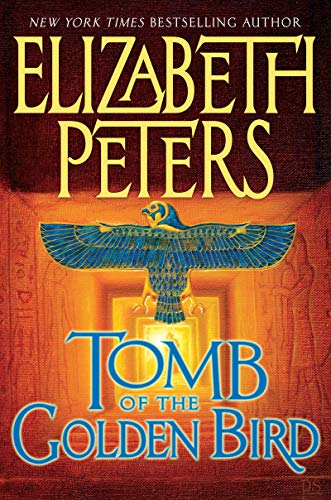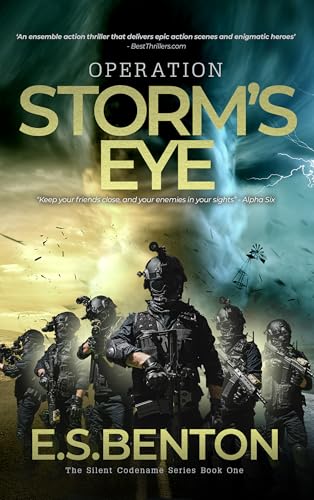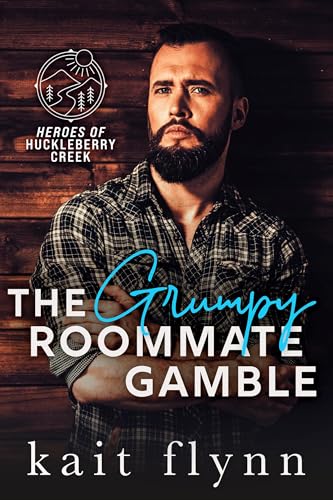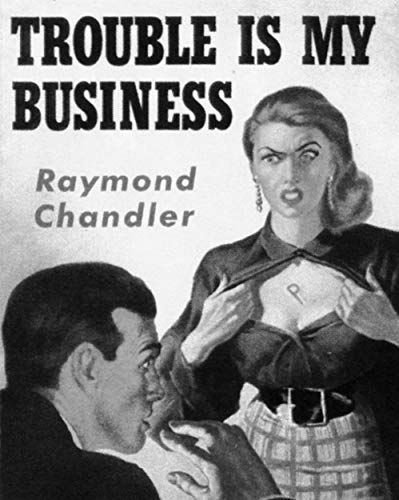By the time you’ve read today’s generous 15,000-word Free Kindle Nation Shorts excerpt from The Hangman’s Companion, we suspect you’ll want to know more about McGill and his creator, who just happens to have plenty of other great reads waiting for you in the Kindle Store.
McGill, husband of the President of the United States, is back in reader’s hands after his previous adventure in The President’s Henchman. That’s when he turned his nose up at being the head of the FBI and decided to hang his private investigator’s shingle on the White House lawn.
Author Joseph Flynn, like McGill, is a contrarian as only a Chicago Irishman can be. Chicago is a city of traditions, firm beliefs and passionate support of their sports teams. There seems to be an unwritten law in the Windy City that residents have to make a choice: root for the Cubs or cheer for the White Sox.
Flynn, born within sight of Cub’s home Wrigley Field, naturally chose to be a Sox fan.
Flynn provides a full shelf of his novels in the Kindle Store. As The Chicago Tribune says: “Flynn [is] a master of high-octane plotting.”
Click here to begin reading the free excerpt
Here’s the set-up:
Always a good sport, Jim McGill, the first private-eye to live in the White House, agrees to accompany his wife, the president, to a G8 summit in London. But he’ll have a week in England with nothing to do.
Then a client comes to McGill, the daughter of Glenn Kinnard, like McGill a former Chicago cop. Kinnard went to Paris to scatter the ashes of his wife in the Seine. While tending to that obligation, Kinnard got into a brawl and killed France’s national sports hero. Kinnard claims he was saving a woman from being beaten by the Frenchman, as French law required him to do. Problem is, the woman has disappeared.
McGill has to find the woman to save Kinnard.
Beats glad-handing the locals in London, he decides. He just has to wrap up the case in time to escort the president to a dinner with the queen.Cove
Click here to begin reading the free excerpt now
Text-to-Speech and Lending: Enabled
Click Here to Buy Now in the US Kindle Store
(UK CUSTOMERS: Click on the title below to download ‘The Hangman’s Companion
 Free Kindle Nation Shorts – April 8, 2011
Free Kindle Nation Shorts – April 8, 2011
An Excerpt from
The Hangman’s
Companion
“A Jim McGill Mystery”
by Joseph Flynn
Copyright © 2011 by Joseph Flynn and published here with his permission
Pont d’Iéna, Paris, Sunday, May 17th
On top of all that, he wasn’t a patient guy even when he was fresh.
Someone near and dear had died.
“My regrets, m’sieur,” the cabbie said. “Where may I deliver you?”
“I know this place. We travel with all haste.”
The American knew just what the driver was wondering: Who’d kicked?
“Elle était française?” the driver asked.
“Yeah,” Kinnard said. “Born right here in Paris.”
The driver turned the meter off. Said the ride was on him.
If he’d had the energy, Kinnard would have been embarrassed.
He wasn’t looking to come off as some Weepy Willie.
“Your name, m’sieur?” the young woman asked.
Kinnard knew they were kidding him, but he played along, grateful.
Kinnard looked at the card. The young woman’s name was Emilie. Same as his daughter.
Once too often finally…and she’d divorced him.
His daughter had cheered her mother’s long overdue departure.
At the age of twenty-four, though, Emilie considered herself to be her own woman, and the last person she wanted back in her life was the prick of a father who had made her mother’s life hell. If giving him another chance was what Maman was asking, then she was asking too much. She told Suzanne so to her face, with Kinnard in the room.
Kinnard turned to Suzi and asked, “Em’s your sole heir, right?
“So let’s put the money question to rest,” he said. “Sign everything you have over to her right now. I’ll cover all your expenses, medical and otherwise. You need to see a doctor, I’ll take you. You need anything, I’ll get it for you. Help any damn way I can.”
Emilie had no doubt Kinnard would keep his word. To spite her.
She extended her hand to Kinnard.
“Be at peace with me,” she said.
He took her hand, and now he couldn’t keep his eyes from glistening with tears.
Seeing her parents look lovingly at each other made Emilie gag.
She stormed out, telling her mother to sell the business and give the money to charity.
None of Kinnard’s ministrations, though, got Emilie to discontinue her verbal abuse.
While he never said a harsh word to her.
Suzanne was the one who knocked Emilie for a loop.
She asked her daughter to be the maid of honor at her wedding.
Suzanne asked only one thing of Emilie: “Be kind.”
Of her husband, she asked, “When I go, please take me home.”
That possibility had to occur to the French cops, Kinnard thought.
Made Kinnard glad he was wearing dark clothes and running shoes.
He might not have destruction in mind, but he was a man with a mission.
He moved deeper into the trees, picked up his pace.
Right where the Seine flowed past the Eiffel Tower.
Only thing was, Kinnard just couldn’t let his wife’s remains go.
“I know giving me that kiss must have cost you,” he said.
She shrugged. “Just trying to do what Mom asked.”
“It’s all right now. She’s gone. You can stop acting like I’m not a total asshole.”
Emilie studied him. Thought about how he’d changed over the past year.
“Maybe total is too strong.” She smiled when she said that.
Almost made Kinnard cry again right there.
Emilie’s forgiveness inspired him that night under the Pont d’Iéna.
Back home, on the job, he would have taken a billy club to both of them.
But he remembered where he was and how well he’d been treated up until now.
The Frenchman, though, had heard enough from the woman.
He finally raised his voice. “Mon Dieu, ferme la bouche!” Jesus, shut up!
“Hey, asshole, leave her the hell alone!”
By now the Frenchman saw who he was dealing with: a gray-haired fart holding a vase. He snarled at Kinnard, “Va te faire foutre, papie.” Fuck off, grandpa.
The woman tried to seize the moment to flee, but she turned an ankle and fell.
Without a moment’s hesitation, he joined the fray.
For a moment, Kinnard could do no more than stare in stupefied disbelief.
But Kinnard wasn’t ready to go.
Not while the French cocksucker was still drawing breath.
The Frenchman spat out a gob of blood and started to say something.
But fancy footwork was no more available to Kinnard than his gun. Still, he was able to see what the Frenchman intended to try. No kicks this time. Not with those wobbly legs. Not with the raw hatred in those eyes. The guy was going to try to kill Kinnard with his head. He wasn’t tall enough to go tête à tête-head to head-so he had to try to crack Kinnard’s chest. Just like that other French guy in that big game.
Chapter 2
Washington, DC, Sunday, May 31st
“Abby’s bottling something up,” his ex said. “You’ll probably be hearing from her soon.”
“I’m going to London with Patti, remember.”
“We’ll still be able to reach you, won’t we?”
“Yeah,” McGill said. “All I meant was if anyone needs me, it’ll take longer to get home.”
Being a dutiful husband, McGill had, of course, accepted.
How often did a private eye get to eat with the president and the queen?
But if any of his kids really needed him, he’d have to express his regrets.
“Hold on a minute,” Carolyn told him.
“They said they’ll be all right for the next week or so.”
“Caitie want me to get something for her in London?”
“Of course. They all do. Caitie’s just the only one to ask.”
“I think she’s got something cooking, too. She’s had some secretive phone calls.”
“No, I don’t think so. But something.”
“Just had my annual physical. All systems go.”
“That’s great. Say hello to Lars for me.”
“Will do. Tell Patti to keep up the good work.”
At the moment, the president’s henchman was absorbed by a story in the sports section of the Chicago Tribune. The Bears, the headline story said, had shocked the city by pulling off a blockbuster trade for an All-Pro quarterback. This was such an unlikely event that many of the team’s faithful, including McGill, had felt it would be preceded by the return of a Republican mayor to City Hall.
The Trib reported no physical defect in the would-be hero.
Daring to hope, McGill looked up from the paper and smiled.
“Jim,” the president said, “I’d like you to tutor me.”
Apparently, he knew something.
“I’d like to learn some basic Dark Alley.”
“You intend to kick someone’s ass when you get to London?”
Rather than answer directly, Patti gave him a politician’s bob ‘n’ weave.
Sometimes she couldn’t help herself.
“I’ll do a favor for you,” she told him.
McGill shrugged. “Patti, some cases are stainless steel whodunits.”
“If your favor was to let me take the reins, no thank you.”
McGill was not about to join the federal government in any capacity.
Other than being married to the woman who headed it.
“I thought you might be more motivated to bring things to a conclusion.”
“He worries about you, too,” the president said.
“He’s pissed at me because I won’t follow orders.”
The president knew she’d get nowhere debating that point.
“So will you help me? Teach me a little Dark Alley?”
“Be happy to. Sorry I can’t do more.”
One who always liked a good challenge.
A primary point McGill was about to bring to the president’s attention.
She stood across from him on a mat in the White House workout room. Three walls of mirrors bounced their reflections back at them. Both wore T-shirts, sweat pants and sneakers. The front of Patti’s shirt bore the acronym POTUS. President of the United States. McGill’s said: Totus bonus. Latin for “It’s all good.”
His only other clean T at the moment said: Eddie’s Bar & Grill.
Now that he thought of it, Eddie’s might have been the more apt choice.
“Don’t think so,” the president said.
All right. That was as far as McGill would fish. But he did need some information.
“Well, what kind of mayhem are you looking for?”
Patti paused to formulate her needs, as if she hadn’t thought it through.
Then she said, “I might need to give someone bigger than me a good jolt.”
“How much bigger?” McGill asked. “Big as me?”
He was six-one, carrying one-eighty these days.
A man most likely then, McGill decided, saying nothing.
“You want this jolt to leave the person standing or knock him down?” he asked.
McGill nodded. “You want to go for the throat? Cause a real scare?”
POTUS recoiled at the idea, horror written on her face.
“Maybe we’ll save that for later,” McGill said. “It’s easy to go too far with that one.”
Patti advanced to the spot from which she’d retreated.
“Jim, I will let you know what this is all about as soon as I can, okay?”
“Sure,” he said. “Let’s start with an old favorite called the foot-trap.”
The president’s henchman nodded and took that into consideration.
“The time has come?” Pruet asked.
“As we both knew it must,” Odo answered.
Odo said, “You are looking emaciated, Yves. You need to eat more.”
He turned to look at Odo. “I have gone on the Alienated Wife Diet.”
“Nicolette never cooked for you or anyone else,” the bodyguard pointed out.
“True, but she dragged me to every expensive restaurant in Paris.”
Odo took a seat at a glass-topped table.
“Whenever you are ready, mon ami.”
Pruet reluctantly joined him at the table.
“The American is ready for you to examine,” Odo said.
“There is no chance he will make things easier for me and die?”
“Remind me of his name,” Pruet said.
“And he came all the way to Paris to kill France’s most celebrated football star.”
“That was not his intent, he says.”
“But it was the result,” Pruet said. “That and to make us miserable.”
“Such would seem to be our lot in life.”
Now, he’d been presented with another disastrous case.
If his investigation exculpated Kinnard, it wouldn’t be only the habitués of the haut monde who would seek vengeance on Pruet. Every Frenchman who cheered for les bleus-the national football team-would come for him with blood in their eyes.
Pruet sighed and said, “My father wanted me to go into the family business.”
“You are allergic to cheese. How could you spend your life making it?”
“I don’t know,” Pruet said. “But I should have tried harder.”
Chapter 3
Monday, June 1st – Washington, DC
There was, of course, one other traveling companion for this president.
Patti winced as she shifted her weight on the seat of her desk chair.
Just as it was drawing to a close, there was a knock at the door.
The president, caught up in Francophony, said, “Entrez.“
And why had the president been speaking in French?














